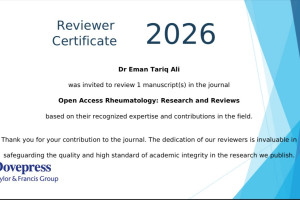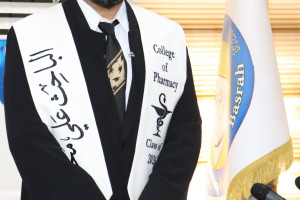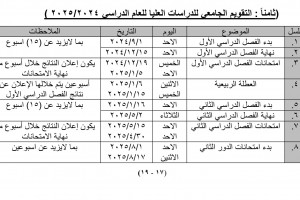
The College of Pharmacy at the University of Basrah organized a scientific symposium entitled (Polycystic Ovarian Syndrome).
The symposium discussed polycystic ovary syndrome, where the pituitary gland secretes high amounts of the hormone (LH), and the ovary also secretes high amounts of the male hormone androgen. This delays the menstrual cycle and leads to difficulty in getting pregnant, as well as increased hair on the face and body and the appearance of acne. The symposium also discussed the causes of the syndrome. Polycystic ovary syndrome, including increased body resistance to insulin (high glucose levels) and genetics, and its symptoms include menstrual irregularity. The duration of the menstrual cycle may exceed 35 days, be less than 8 times a year, or be completely absent, in addition to an increase in facial and body hair, acne, and obesity. And difficulty getting pregnant.
The symposium also discussed some ways to treat polycystic ovary syndrome, where treatment depends on modifying the lifestyle by following a diet that contains a small amount of sugars, a lot of grains, vegetables and fruits, and a small amount of meat. This helps reduce blood sugar levels, improves the body’s use of insulin and adjusts its level in the blood. the body. And using pills that regulate blood sugar levels, such as Glucophage, which is used to treat type 2 diabetes. This medication improves the response to the hormone insulin, thus reducing the production of the hormone (androgen), thus reducing the appearance of unwanted hair. It also helps in the occurrence of ovulation and reduces weight. It adjusts the level of cholesterol in the blood.
The symposium aimed to raise public awareness of polycystic ovary syndrome and how to treat it to maintain the general health of women.







